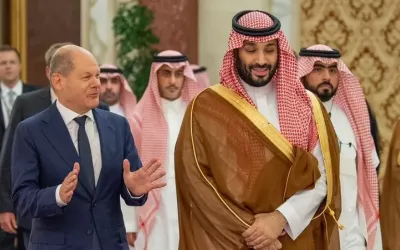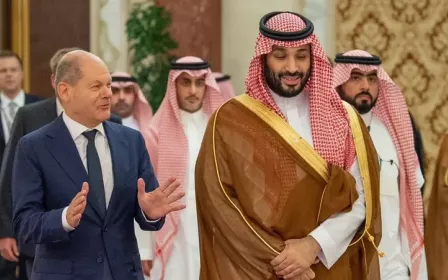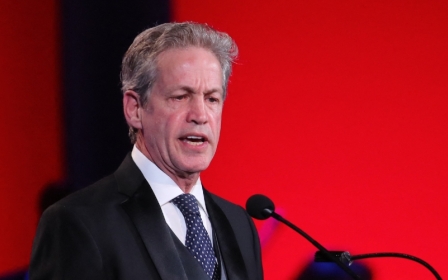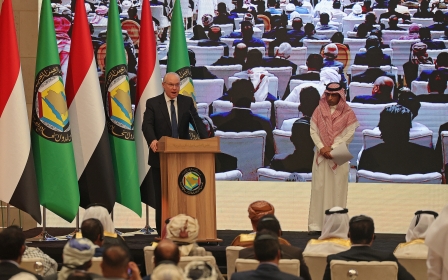Saudi Arabia: Crown Prince Mohammed bin Salman named prime minister
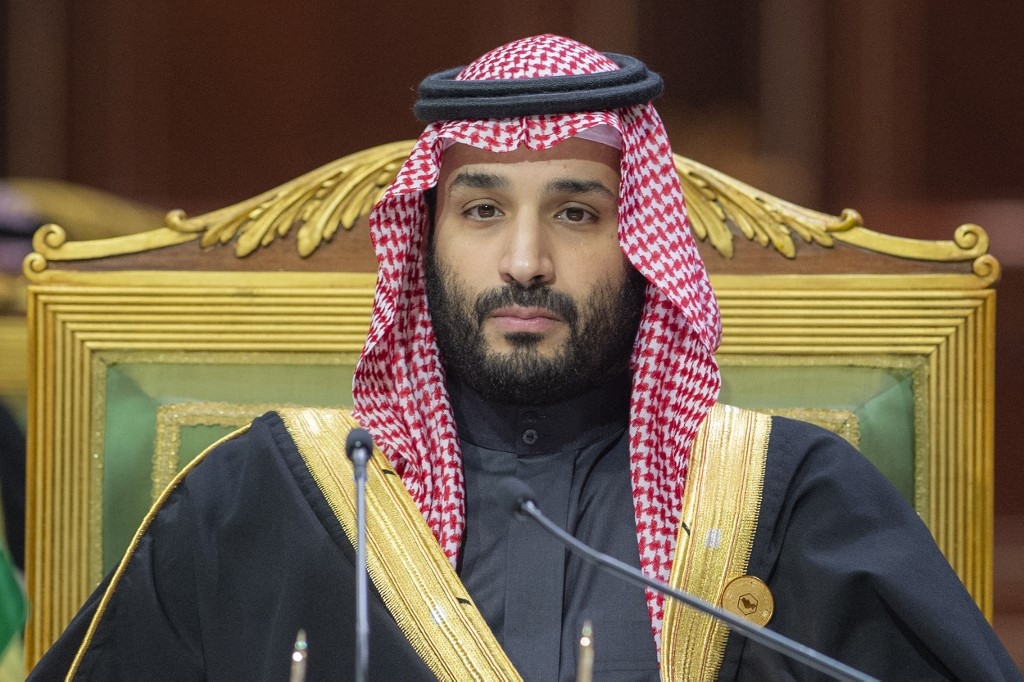
Saudi Arabia's powerful crown prince, Mohammed bin Salman, has been named prime minister, a post traditionally held by the king, in a government reshuffle announced on Tuesday.
The move effectively formalises power already wielded by the prince, who has been the kingdom's de facto ruler for several years.
The decision is also likely to protect the prince from a lawsuit in the US in connection to his alleged role in the killing of the journalist Jamal Khashoggi.
Under a court-ordered deadline due next week, the Biden administration had been asked by a US judge to advise on whether the crown prince ought to be protected by sovereign immunity in a case brought by Hatice Cengiz, Khashoggi's fiancee.
Such immunity is normally granted to a world leader, such as a prime minister or a king, and would also allay concerns that the crown prince could be arrested, or otherwise face legal problems, while out of the kingdom.
New MEE newsletter: Jerusalem Dispatch
Sign up to get the latest insights and analysis on Israel-Palestine, alongside Turkey Unpacked and other MEE newsletters
The heads of other critical ministries, including interior, foreign and energy, remained in place, according to a royal decree from King Salman published by the official Saudi Press Agency.
The crown prince, who turned 37 last month, has been first in line to succeed his father as king since 2017.
Saudi Arabia has for years sought to quell speculation over the health of the 86-year-old king, who has ruled the world's top oil exporter since 2015.
In 2017, it dismissed reports and mounting speculation that the king was planning to abdicate in favour of his son.
King Salman has been hospitalised twice this year, most recently a one-week stay in May that involved tests including a colonoscopy, according to state media.
The crown prince is being replaced as defence minister by his younger brother, Prince Khalid bin Salman, who was deputy defence minister.
Prince Khalid's promotion "formalises the key role he has in any case been playing in the ministry since 2019, but also makes the changes look more like a cabinet reshuffle for presentational purposes," said Kristian Ulrichsen, a research fellow at the Baker Institute at Rice University.
Princes detained
The crown prince became defence minister in 2015, a key step in a swift consolidation of power.
In that role he has overseen Saudi Arabia's military activities in Yemen, where the kingdom leads a coalition backing the internationally recognised government in its fight against Houthi rebels.
In a sweeping purge of the nation's elite, the crown prince detained and threatened some 200 princes and businessmen in Riyadh's Ritz-Carlton hotel in a 2017 crackdown, labelled as an anti-corruption drive, that tightened his grip on power.
He gained global notoriety over the 2018 killing of Khashoggi in the kingdom's Istanbul consulate.
Last year, US President Joe Biden declassified an intelligence report that found the crown prince had approved the operation against Khashoggi, an assertion Saudi authorities deny.
But the spike in energy prices triggered by Russia's invasion of Ukraine spurred a number of western leaders to travel to Saudi Arabia to appeal for ramped-up oil production, notably then-UK prime minister Boris Johnson and Biden himself, who swallowed an earlier vow to make the Saudi leadership a "pariah".
German Chancellor Olaf Scholz became the latest major leader to visit the kingdom this past weekend.
Previous precedent
Making the crown prince prime minister is an unusual move, but it has happened before.
In the 1950s, Crown Prince Faisal Al Saud became prime minister and assumed control of government operations, ultimately leading to a power struggle resulting in then-King Saud's abdication.
This scenario is different, "formalising a de facto situation," said Ali Shihabi, a Saudi analyst close to the government.
"It was overdue actually, since he has been CEO to the king's chairman role for many years," Shihabi said.
The crown prince "has already gone through the power struggle phase and won it over, so what's happening now is more regularisation of his authority," said Umar Karim, an expert on Saudi politics at the University of Birmingham.
The move could also resolve thorny questions related to protocol, given the crown prince has for years been meeting heads of state even though his administrative rank has been defence minister, Karim said.
Middle East Eye delivers independent and unrivalled coverage and analysis of the Middle East, North Africa and beyond. To learn more about republishing this content and the associated fees, please fill out this form. More about MEE can be found here.


